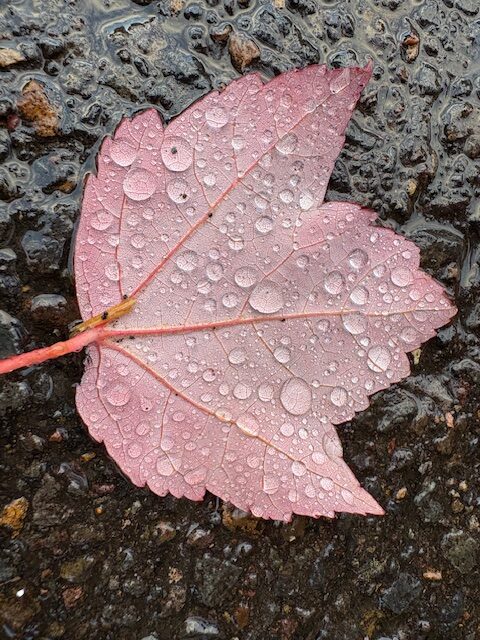The Legend of Lizzy, Rainmaker

By Patricia Crisafulli
Crickets call from the grass, chirping notes from summer’s soundtrack on an unseasonably warm October evening. If she did not know better, Eliza would guess it to be early September, perhaps even late August, but it is a week before Halloween. Weather patterns disrupt. In some areas of the country far too much rain; here, far too little. The drought map shows extreme dryness in this place where Eliza spent her childhood and where she and her husband are visiting family for a long weekend.
As a meteorologist, Eliza knows the jet stream the way some people trace the veins on the backs of their hands. She spends her days in front of the TV camera, delivering the forecast as she gestures to the low-pressure system in the west, the high pressure lingering in the south. Behind the graphics flashing green and blue and occasionally red is the science of it all. Statistical averages, seasonal patterns, standard deviations from the norm.
But not here. Not on the back porch of the house overlooking the land that has been in her family for four generations. Here there has always been something else—folk wisdom and tradition, and her grandmother, Lizzy, who believed she could predict a change in the weather better than any almanac or forecaster.
And who once told Eliza of the day she made it rain.

Her grandmother knew the weather by taste—that’s what Lizzy used to say. It was a sensation, rich and flavorful, on the back of her tongue. It had been Lizzy’s unique gift, in-born but not passed on to future generations. Never in her childhood had Eliza ever sensed what her grandmother described—how summer’s tang, like ripe tomatoes, predicted fair weather, and a metallic bite in winter warned of a blizzard. And never in adulthood had she ever experienced anything close, not in her field studies at college and certainly not in her career.
Yet Eliza does not want to dismiss it—not as she stands on the porch and remembers watching her beloved grandmother: head tipped back, eyes half closed, taking long slow breaths through her nose. That’s how it’s done, Lizzy used to say.
Here, away from the databases and the computer models, Eliza longs to feel the weather, to experience it, unpredictable and untamed. Here, where people once lived closer to the land and more attuned to nature—who observed the thickness of squirrel tails and counted cones on pine trees—she wants to imagine that perhaps what her grandmother once told her could be true.

September 19, 1952
Lizzy pushed open the screen door from the kitchen and stepped onto the back porch in search of an evening breeze. But even at nearly nine o’clock in the evening, the air still crackled with heat. Sixty-one days and no measurable rain.
At age twenty-six and a farm wife for five years, Lizzy felt the tension in the air. It wasn’t just her own worry over the garden faded to brown husks and dried vines where tomatoes, beans, squash, cucumbers, and sweet corn had once grown. It wasn’t her husband’s anguish over fields that failed, the creek bed that held only mud, and the water brought up from the very bottom of the well that tasted like sulfur.
No, Lizzy knew that what she felt came from outside herself. From the orchard where trees dropped more leaves than fruit, and the woods where pines shed their needles like tears. And from the earth cracked into deep fissures.
Rain had to return, Lizzy told herself, again and again. But when she closed her eyes and breathed in deeply, all Lizzy tasted was drought, like dust and old feathers.
Frustration and more than a little fear pushed her off the back step and into the darkness. Her steps thudded against concrete-hard ground, then bristled in the grass. She passed the looming shape of the barn, the skeletal frame of the wooden fence, and entered the pasture.
Something stirred. A rising breeze flowed over the gentle slope of the land, parting the grass with a rustle. It cooled her sweaty face.
Smiling, Lizzy pushed forward into the wind and through the trees, feeling her way from the rough bark of one tree to the next. The path angled downward into a gully, a place she knew well by daytime, but the darkness confused her. Somewhere ahead lay a pond, though shrunken to a pool in the dry heat. She slowed her pace, not wanting to plunge into mud nor trip on tangles of cattails.
Exertion made her crave a deep breath, taken in through her nose. A taste filled her mouth, coating her tongue: like dark chocolate, toasted almonds, and the pungent bite of cinnamon. And that’s when she knew: the fall rain would soon come.
Day after day, she returned to the spot. When her husband asked her why, she hesitated to tell him. It would be too much for him to hope and far too hard to believe.
“I have to go back. To the pond,” she said. “I think I need to be there. To make it real.” She paused, dropping her eyes and her voice along with it. “To make it rain.”
Tension and fear and a little anger radiated from her husband. “Lizzy.”
She reached for his hand, feeling the rough, dry callouses. “Come with me.”
He rose to his feet, stood a moment, then nodded. They didn’t speak all the way to the pond. By the cattails, Lizzy stood, sniffing the air, turning her head this way and that, but the air tasted flat. It was her husband’s disbelief, Lizzy knew, but kept that conviction to herself. “Please,” she whispered into the night air.
Then came the first sensation. A hint of chocolate, a scrape of the cinnamon stick, the burned taste of toasted almond. “Do you—?” Lizzy began but fell silent at the sight of fog ascending from the water and descending from the sky to meet in the middle, forming a cloud that spread over the pond and crept to the edge where they stood.
Overnight, it began to rain. Her husband pulled her from sleep, tugging her all the way to the door and out into the farmyard.
“Lizzy,” he said, flinging out his arms to catch the drops on his skin. “You made it rain.”

It had been an evening air inversion, Eliza knows. What her grandmother described in a hushed voice so many years ago, when Eliza was a preteen, is a common phenomenon: warm air flowing over cooler, denser air near the ground. Completely natural, triggered by sunset and the loss of warmth in the soil and grass.
That’s what makes patches of fog in low spots or even across an entire valley. And that’s all her grandmother had seen that night when she brought her husband to the pond in hopes of coaxing the rain. Their vigil had simply coincided with a shift in weather, from a prolonged spell of heat and drought to the welcome start of cool and wet. As for what Lizzy thought she tasted, it was only sensory memory conjuring the flavors of fall.
Neither mystical nor magical, it was purely meteorological.
And yet, even with a master’s degree in climatology and environmental biology, Eliza cannot quite convince herself to dismiss the story. In the very least, the timing of Lizzy’s experience raises it above the commonplace.
Eliza steps off the porch onto the hard ground of the backyard. Casting her eyes upward, she catches the fast-beating wings of a bat as it feasts on mosquitoes in the air.
Weather, like nature, isn’t merely a system; it is a force. And there are things—like the shooting lights of the aurora borealis or the bioluminescence that appears in swamps—that feel mysterious, even when there is an explanation.
She recalls the farm families sitting in hard pews at the local church, praying for rain. The old woman in the community who had emigrated as a young bride from Eastern Europe, and who draped a rosary around the statue of the Virgin for fair weather on each of her six daughter’s wedding days. The woman was never disappointed—not even when one daughter married in March.
Retreating from the puddle of porchlight into the darkness, Eliza allows herself to ponder what weather science has shut down as superstition: What if intention plays a part in the weather?

Taking her iPhone from her pocket, Eliza clicks the flashlight app. The ground at her feet illuminates. She heads toward the barn-turned-workshop where her father now makes furniture. In the loft, swept clean of cobwebs and the dusty dregs of hay, is her mother’s art studio.
Behind her, a man’s voice calls—her husband, Duncan. Eliza returns the greeting, waving her phone’s light to guide him. Together they follow the path through the pasture and into the woods.
“Looking for something?” Duncan asks, his arm slipping around her shoulders.
“I like walking at night,” she replies, but nearly trips on a hummock of grass. Duncan steadies her.
“Maybe we should go back.” He pauses, takes her hand.
“I want to see the pond,” Eliza admits. “It’s not far.”
Duncan hums a sound of agreement, and Eliza knows he’s recalling the story she told him on their drive to the farm this weekend. She had never told him before today, had never told anyone, for that matter.
“The Legend of Lizzy,” he teases.
“Don’t,” she says quickly. “Please.”
He squeezes her hand. “I’m sorry. Didn’t mean to upset you.”
They walk single file through the trees and down the slope toward the pond. The cricket chorus crescendos and tiny tree frogs join in.
Side by side, they listen and linger for something that Eliza cannot name. Except the air feels different. Her mouth waters, and her tongue wets her lips.
And then it hits her—a bitter earthiness like the 75% cacao that Duncan calls the really good chocolate. Then notes of fall spice and a burned nuttiness like toasted almonds.
She wasn’t smelling, Eliza realizes, but tasting. It was the flavor of the air itself.
Before she can say anything to Duncan, Eliza notices the first wisps gathering in the air as cool meets warm, buoyant melds with dense. Fog forms, rolling over the pond and the cattails, swirling around them.
Duncan laughs, and Eliza smiles as he waves his hands grasping for the mist. Their own personal cloud leaves cool droplets on their skin, dampening the fabric of their clothes.
She knows what it is. There is nothing unworldly here. They have not conjured anything. But the taste in her mouth won’t go away. It’s stronger now, almost overpowering. And so she simply gives in—whether to knowledge or to belief. The dry spell is ending.
Summer that has stayed long past its welcome is finally over, and fall is here. Not by the calendar or the equinox, but by this moment at the pond where the shift is occurring.
And in the morning, it will rain.


